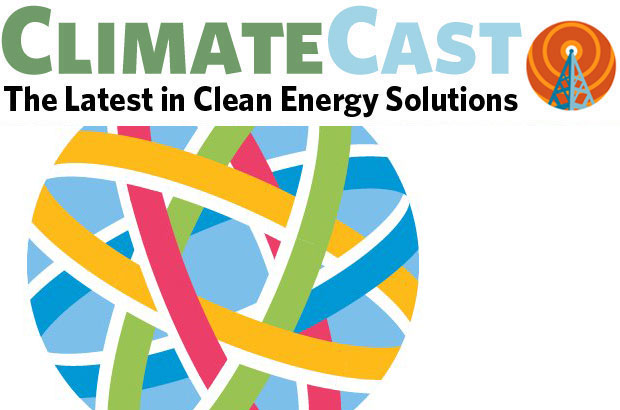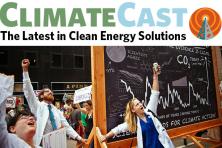West coast states making history with carbon-free commitments
Two weeks ago, we reported the California State Assembly’s passage of groundbreaking legislation committing the state to achieving 100% clean energy by 2050. This week, on the eve of the Global Climate Action Summit in San Francisco, Governor Jerry Brown managed to up the ante even further—with an executive order for California to achieve full, economy-wide carbon neutrality by 2045. The state’s public university system is making history too with its own major carbon-free commitment: the 10 campuses serving 238,000 students across the state will run itself solely on electricity from renewable sources by 2025. This is a first-of-its-kind announcement from one of the nation’s largest public university systems. Also in California, Silicon Valley-based tech giant Facebook announced that the company will utilize 100 percent renewable energy by 2020.
In a season when the Golden State is already making climate action history, Washington State voters have the opportunity to reach a significant milestone of their own. Initiative 1631, the Protect Washington Act, would impose a fee on the state’s largest emitters of carbon pollution, and invest in transition to a clean energy economy. If the measure passes in November, Washington will be the first state to adopt a carbon free through popular vote. The City of Portland has joined 18 other major cities around the world to pledge that all new buildings in the city will be carbon “net zero” by 2013—meaning they will use energy ultra-efficiently and meet any remaining energy needs from renewable sources.
Fighting back against fossil fuels
Back in June, developers for the proposed Jordan Cove liquified natural gas project in Southern Oregon asked the Oregon Department of Energy for a regulatory exemption affecting part of the project. The staff of the Oregon Department of Energy denied this exemption. While the staff recommendation is not binding, it will further delay construction of the highly controversial project. In Canada, opponents of the Trans Mountain Pipeline expansion project has been halted yet again are celebrating a court decision halting construction of the controversial project. If built, Trans Mountain would increase tanker traffic along the Canadian Pacific coast nearly sevenfold. These two rulings are far from the only examples of how people are fighting back against fossil fuels; local governments around the country have filed more than a dozen lawsuits seeking to hold the fossil-fuel industry liable for climate-related damages.
The latest triumphs in clean energy
Later this month, the Spokane Tribe will begin working on a $2 million solar initiative that will generate 637 kilowatts of solar energy for 14 tribal buildings. The project is part of the tribe’s multi-year effort to expand solar energy on its 159,000-acre reservation west of Spokane. In Oregon, major solar developer GCL New Energy Holdings Ltd. has received insurance that will help guarantee production of new solar facilities in the state. In wind energy news, the world’s largest offshore windfarm has opened in the Irish sea, spanning an area the size of 20,000 football fields and boasting enough capacity to power the equivalent of 590,000 homes.
Climate change: reshaping earth and the human experience as we know it
Wildfires in the US have burned more than 10,000 square miles so far this season, and those fires are reshaping the US landscape, leaving behind charred earth that is vulnerable to mudslides and erosion, and killing all plant life. Even seeds hidden beneath the surface are incinerated. But that’s just one way climate change is wreaking havoc; a comprehensive survey of global fossil and temperature records over the past 20,000 years suggests that Earth’s terrestrial ecosystems are at risk of dramatic ecological shifts that would make now familiar landscapes unrecognizable—unless aggressive action is taken against climate change.” Our landscapes aren’t all that’s changing; the human experience is being altered too. New research reveals that air pollution causes a huge reduction in human intelligence. High pollution levels reportedly led to significant drops in test scores in language and arithmetic—the average impact equivalent to that of having lost a year of education. And with a UN official reporting that governments are not on track to meet the 2 degree Celsius goal of the 2015 Paris agreement, it appears we’ve got our work cut out for us!
Troubling developments
You’ve surely heard of outsourcing jobs, but have you heard of outsourcing pollution? It’s real, and difficult to calculate. Many wealthy countries—including the US—have “outsourced” much of our climate pollution by importing carbon-intensive products like steel, cement and other goods from factories in China and elsewhere, rather than producing it domestically. In other troubling developments, President Trump has named William Happer, a Princeton atomic physicist and prominent climate skeptic as senior director for emerging technologies. And a new report from the US Government Accountability Office has found that the Federal Emergency Management Agency (FEMA) was so overwhelmed with other storms by the time Hurricane Maria hit Puerto Rico, that more than half of the workers it sent to the field were known to be unqualified for the assignments they had been given.
In brief: Air Pollution Could Be Costing the Solar Industry Billions
Transitioning to a clean energy economy helps us combat climate change and air pollution. But what if the air pollution that’s already here is making it harder for that transition to take hold? A new study reveals that air pollution resulting from dirty energy sources is making solar less effective than it could be. The study looked at how tiny air pollution particles can reduce the energy output of solar photovoltaics by preventing sunlight from reaching them. The study’s authors say the loss of light could translate to hundreds of millions of dollars of lost solar revenue around the world each year. Yikes.




